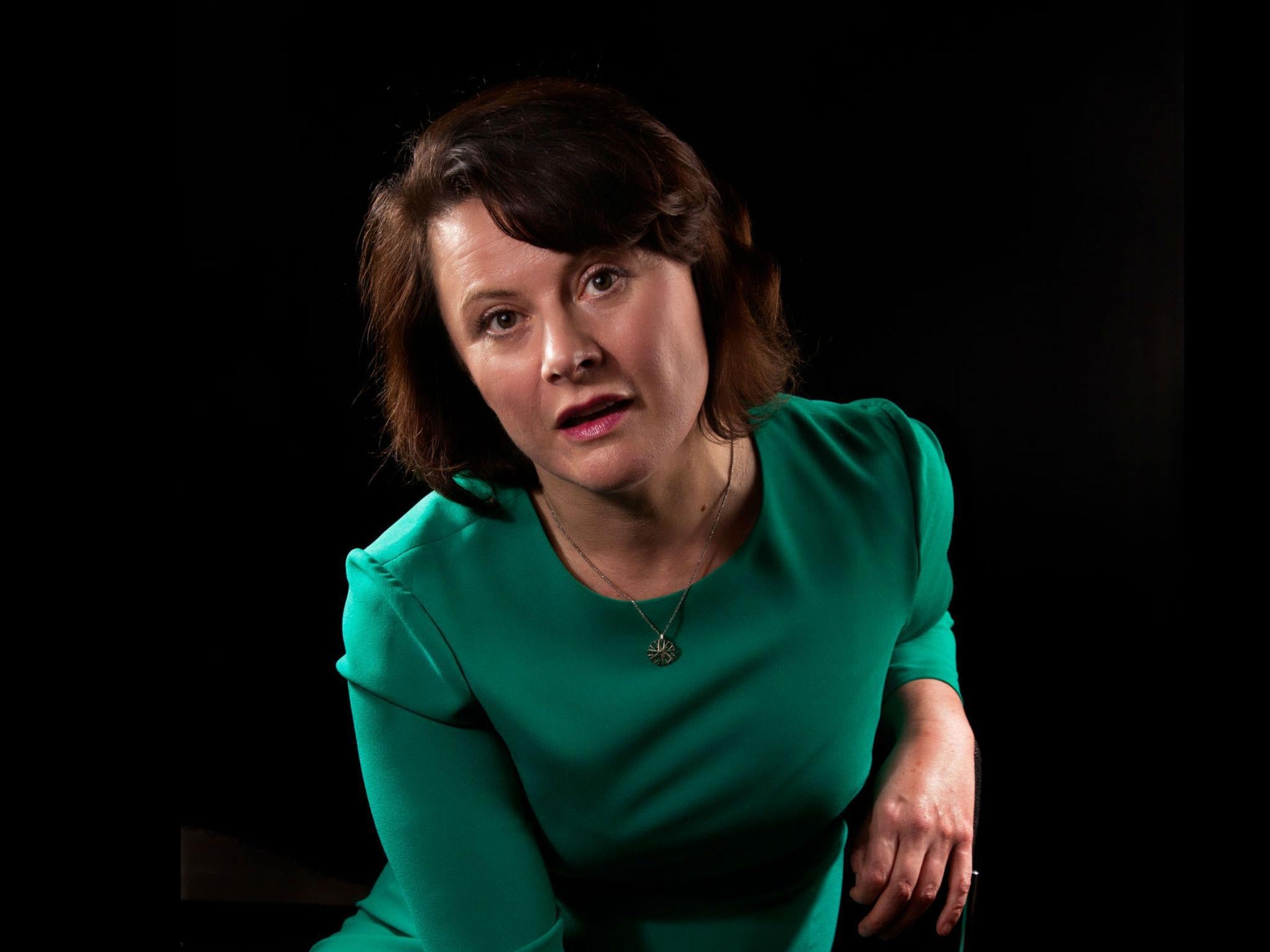The B*easts, Bush Theatre, London, review: A remarkably combative and thought-provoking piece about the sexualisation of our culture
This one-woman show is written and performed by Monica Dolan who won a Bafta for her role as Rosemary West in 'Appropriate Adult'

Your support helps us to tell the story
From reproductive rights to climate change to Big Tech, The Independent is on the ground when the story is developing. Whether it's investigating the financials of Elon Musk's pro-Trump PAC or producing our latest documentary, 'The A Word', which shines a light on the American women fighting for reproductive rights, we know how important it is to parse out the facts from the messaging.
At such a critical moment in US history, we need reporters on the ground. Your donation allows us to keep sending journalists to speak to both sides of the story.
The Independent is trusted by Americans across the entire political spectrum. And unlike many other quality news outlets, we choose not to lock Americans out of our reporting and analysis with paywalls. We believe quality journalism should be available to everyone, paid for by those who can afford it.
Your support makes all the difference.Monica Dolan, an infallibly arresting actor who won a Bafta for her superb portrayal of Rosemary West in the TV drama Appropriate Adult, has written this 65-minute one-woman play which she also performs. It’s a remarkably combative and thought-provoking piece about the sexualisation of our culture – and of children in particular. You can’t get it out of your head afterwards.
Dolan appears as Tessa, a sharply intelligent and forthright psychotherapist who sits in the lamplight, puffing on an electronic cigarette and taking tiny sips of whisky, poured from a miniature bottle. She talks to us about a high-profile case she has been working on – that of “Karen”, a mother who was arrested and put on trial for enabling her eight-year-old daughter “Leila” to have the breast implants the child so implacably desired. On the couple’s return from Brazil, where the operation was performed, the “enhancement” unleashes public disgust and a tabloid outcry – with appalling results
The play proposes what could, at first blush, seem a far-fetched situation and then makes it horribly plausible. “I’m not here to judge Karen. I’ll leave that to the world I’m supposed to make her happy in,” says Tessa with some acidity. She does not glibly absolve the mother of blame for succumbing to the pressure from her daughter. But she trains an excoriating eye on the background to the scandal – our culture’s obsession with body-image and on the flagrant contradictions in our attitudes to breasts as signifiers of both sexuality and nurture.
Leila, we learn, was a lonely little girl, deprived of attention, and fascinated, from the age of three, with the pictures in her mother’s magazines of women with perfect boobs. We live in a society where there are shops that sell padded underwear designed for girls as young as seven and yet where public breast-feeding is frowned on in some places. When mother and daughter get back to the UK, the press and the internet go berserk. Karen is taken into custody and Leila into care. Hypocrisy runs rampant. It’s certainly true that there’s an unconscionable disconnect now between the girl’s modified body and her emotional age. But if the tabloids are sincerely concerned about this, why do they proceed to strip Leila of every vestige of her childhood – conniving with social media to turn her into a titillating object of vilification.
In the scenario that Dolan imagines with such vivid power, the child herself effectively ends up condemned for the “cold-blooded murder of the ideal of the innocent child”, the public almost thinking of her in the same light as a Mary Bell or Thomson and Venables.The ideal of the innocent child, eh? Can these be the same tabloids salivating over some young celebrity actress looking “all grown up”?
In John Hoggarth’s engrossing production, there’s the sense that this is a kind of therapy session for the therapist who thinks that the problem is so urgent that, for once, she’s prepared to violate doctor/patient confidentiality. The interruptions on her mobile phone hint that Tessa is grappling with a problem of her own and they feel a bit too neatly pertinent to the theme. But this a commanding performance from Dolan of pouncing intelligence, caustic wit, and an angry passion that spills into the wide-ranging analysis. Just the same qualities as in the writing. Let’s hope that she has more where this came from.
Until 3 March (bushtheatre.co.uk)
Join our commenting forum
Join thought-provoking conversations, follow other Independent readers and see their replies
Comments